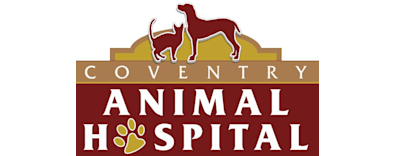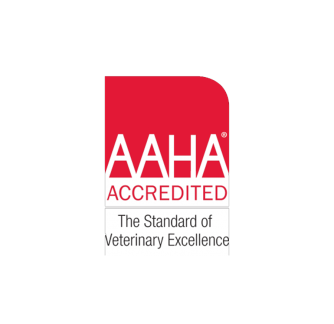Coventry Animal Hospital

Canine Center
VACCINATION PROTOCOL
6 - 8 weeks – DA2PP, Bordetella Intranasal
10 - 12 weeks – DA2PP, Leptospirosis, Bordetella Injectable
12 -16 weeks- Rabies (per Pennsylvania state law)
14 - 16 weeks – DA2PP, Leptospirosis, Lyme
18 – 20 weeks – Lyme, Canine Influenza
22 - 24 weeks – Canine Influenza
This vaccination protocol is based upon AAHA recommendations. The veterinarian may change these recommendations based upon the lifestyle and risk of your pet.
SPAY / NEUTER
Small breeds (Less than 45lbs adult weight) – recommended at 6 months
Large breeds (Greater than 45lbs adult weight) – recommended at 9-15 months
Blood work and ECG screening is performed prior to anesthesia.
Any remaining deciduous teeth should be extracted at this time
MICROCHIPPING
We utilize Home Again microchips which are accepted internationally.
This microchip is permanent ID that links your pet to you. Learn more here!
Once your pet receives a microchip, you can apply for a lifetime license.
STOOL SAMPLE EXAM (OVA, PARASITES & GIARDIA)
We recommend stool sample exams annually to keep our pets and family members healthy.
If your pet’s stool sample exam comes back positive for a parasite, we will notify you with the results, and provide appropriate treatment, including when to submit another stool sample to be sure the parasites have cleared your pet’s system.
FLEA, TICK & HEARTWORM PREVENTION
Credelio is an oral flea and tick prevention that lasts for 1 month. This product is used for dogs and puppies 8 weeks of age and older. Credelio is available for purchase on Vetsource our online store.
Bravecto is an oral flea and tick prevention that lasts for 3 months. You can use this product starting at 6 months of age.
Sentinel Spectrum is an oral heartworm preventative. In addition to preventing heartworm, this product helps protect against roundworm, hookworm, whipworm, and tapeworm infection. It also interrupts the flea life cycle.
DENTAL CARE
Now is a great time to get your puppy used to the sensations of tooth brushing.
At home, practice opening your pet’s mouth and lift your pet’s lips on a daily basis. After they are comfortable with that sensation, start rubbing your fingers on their gums and teeth on a daily basis.
We offer finger brush kits, tooth paste specific for pets, dental treats and dental diets. Please wait until adult teeth are present before brushing.
Appropriate chew toys can also help maintain your pet’s oral health. Toys should be made from material that you can indent with your thumb nail. If the toy is too hard, your pet could be at risk for fracturing teeth.
PET INSURANCE
There are many types of insurance coverage for your pet. Some insurance plans offer coverage for injuries/illnesses, some plans offer coverage for wellness/ preventative needs, and some plans offer coverage that is comprehensive (both illness and wellness). There are several companies to choose from with a few listed below.
ASPCA Pet Health Insurance
Pet Plan Insurance
Trupanion Insurance
Nationwide Insurance
Embrace
Trupanion Insurance offers 30 days of free insurance if you contact them within 24 hours of your first veterinary exam. Trupanion also directly reimburses your veterinarian.
PUPPY DIETS
We recommend offering pet foods that have been AAFCO tested and are for the puppy life stage. This information is available on the pet food bag.
Our veterinarians recommend:
Hill’s Science Diet
Royal Canin
Iams / Eukanuba
Purina Pro Plan
Purina One
There are many other good quality foods on the market, but be cautious. Expensive marketing campaigns are misleading and do not always correspond with the quality of the food.
GROOMING
Grooming Though puppies generally don't need much grooming, start grooming early so they get used to being handled by you and other people (veterinarians and groomers). Using a soft bristle brush, gently stroke his back a few times; try brushing while the puppy is drowsy in your lap. To desensitize the feet for nail trimming, start by picking up one of your dog’s paws and gently hold it for a few seconds, touching his toes and nails. Gradually, try trimming a nail or two while giving treats.
f you plan to take your dog to a professional groomer as an adult, call the groomer and ask when your puppy can drop in for a visit and start with short grooming appointments.
CAR SICKNESS
Each animal handles the car and coming to the vet differently. Here are some helpful tips to get your puppy used to the motions and prepare them for their vet visit:
One reason for motion sickness in young pups is a lack of early handling by humans. Try cuddling the puppy upside down in your lap, gently picking him up in the air or rolling him gently on the floor. These small movements done daily can mimic the car motion.
Every ride for the dog should not be an unpleasant experience with a needle at the veterinarian’s office or tedious grooming at a salon.
Ask about bringing the animal in for a happy visit, just to have the staff give treats, praise the animals and get them used to being in the office for positive reasons.
TIPS
Don’t feed your dog before getting him/her into the car.
Always leave the window open for enough fresh air but NOT enough for him to jump out.
As he progresses so that he can go for short runs, take him whenever you can…on chores, for a short visit to friends, for a fill-up at the gas station. Work his rides into your normal routine whenever possible. Happy motoring!
If car sickness continues, your Veterinarian can prescribe a sedative or anti-nausea medication. Adaptil is a collar the animals can wear, which gives off a pheromone that helps with calming.
Owners report much success with a drug called Cerenia for chronic cases.

